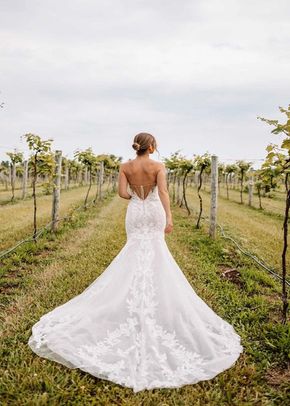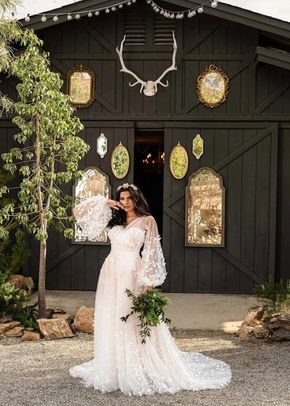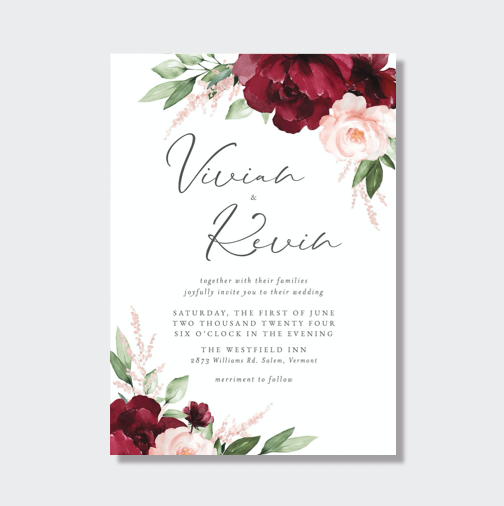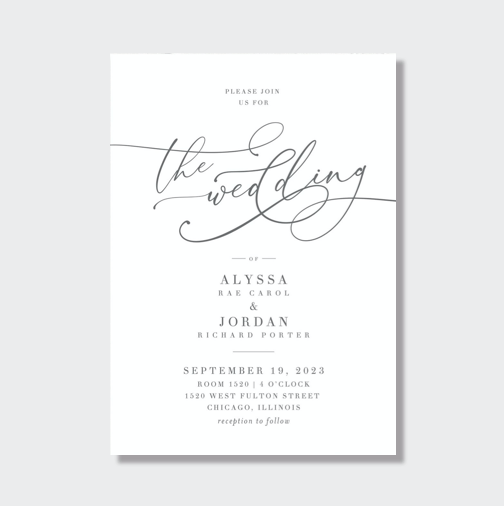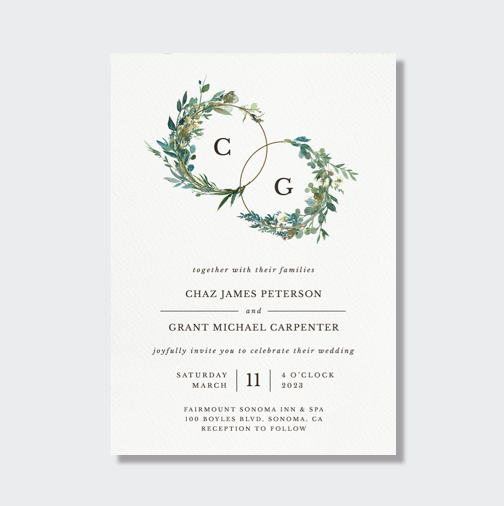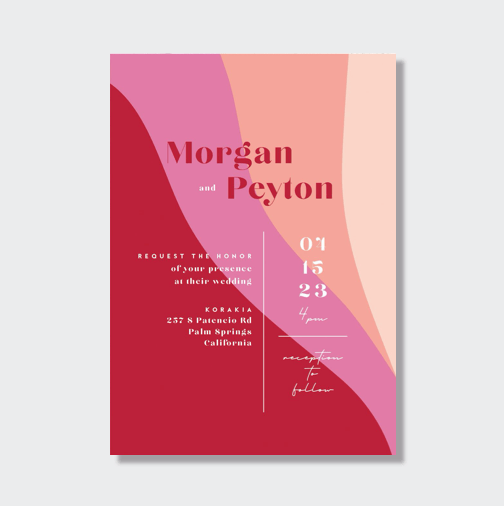Wedding Catering Cost Guide
View other categoriesCosts displayed in graph are based on spend from thousands of couples who recently reported pricing for this service within their WeddingWire review. Pricing varies based on factors including, but not limited to, vendor’s experience, level of expertise, event guest count, date, and geographic region.
How much does wedding catering cost?
Food and drink are a major part of the wedding experience (no one wants hangry guests!), so it’s no surprise that you’ll spend a big amount of your total budget on your wedding catering. The average wedding catering cost in the U.S. is about $4,000 with most couples spending between $1,800 to $7,000. Note that wedding catering prices do vary widely depending on your wedding’s location and many other factors, like guest count—but no matter where you’re getting married, delicious and plentiful food is essential to an amazing wedding reception experience.
What is included in a wedding catering package?
Your wedding catering may be provided by your wedding venue, or you may want or need to hire an outside caterer. Reading a wedding catering contract can be a bit confusing, but in general, your wedding catering cost will be priced on a “per person” basis. A standard wedding catering package includes the following:
- Food: The wedding food cost is the most obvious part of a wedding catering package. You’re paying for the actual food that your guests will eat during cocktail hour and the main meal. Whether it’s served plated or buffet style is up to you and your caterer.
- Beverages: Your caterer will likely provide beverages, both alcoholic and not, for your big day.
- Staffing: From your event manager to cooks, servers, bartenders, and more, there are lots of staffers that will go into making your wedding day a success. It’s important to work with your caterer to make sure that you have enough people on hand to ensure a smooth reception.
- Rentals: Your caterer may also provide rentals, from tables to chairs, dishes to glassware, utensils, and more. Some venues provide these rentals, or you may need to hire a separate rentals company.
- Additional fees: Caterers may charge additional costs and fees, including cake cutting fees, corkage fees, and more. Be sure to read your contract carefully—and ask questions—to make sure you understand your wedding catering cost.
What are the different ways to serve wedding reception food?
When determining your wedding food cost, a big factor will be how you’re planning on serving the meal. There are a few serving style options for weddings:
- Plated: Otherwise known as a sit-down meal, your guests will be served their meal at their table by a member of the wait staff. There may be a single entrée option served or several entrée options, which your guests can either order in advance (usually on their RSVP card) or at the event. This is the most formal and traditional of wedding serving styles.
- Buffet: For a more casual serving style, guests serve themselves from a buffet station. Fifty percent of couples choose a buffet-style reception.
- Family-Style: Servers provide large platters of food to reception tables, and guests pass the trays around and serve themselves.
- Cocktail-Style: A more modern service style, food is served via passed hors d’oeuvres and at stations. This allows guests to walk around, and mix and mingle during the reception instead of sitting at their tables.
What is the average wedding catering cost per person?
The average wedding catering cost per person varies depending on your wedding’s service style. For a plated meal, the average cost of wedding catering in the U.S. is $40 per person. For a buffet, the average is $27 per person.
Is a wedding reception buffet always the cheaper option?
Most of the time, a wedding reception buffet is indeed less expensive than a plated dinner. While you’ll pay less in staffing and rentals for a buffet-style meal, you’ll need more food since guests are serving themselves. To keep your buffet budget-friendly, avoid serving costly foods (shrimp, for example) buffet-style or have a staffer on hand to serve your guests from the buffet to keep the portions under control.
What is the average cost of alcohol for a wedding?
Alcohol can comprise a major part of your total wedding catering cost. In general, the average starting price in the U.S. for bar service at a wedding is $15 per person.
What are the different wedding bar options?
Depending on your guests’ preferences and your budget, there are several different ways that you can serve alcohol at your wedding.
- Full open bar: A full open bar provides a variety of wines, beer, hard alcohol, and non-alcoholic beverages. The wedding hosts pay for the entire bar, and guests don’t have to shell out any money during the wedding.
- Limited open bar: If you’re on a tighter budget, a limited bar may be a worthwhile option. This bar provides wine and beer (and perhaps a single type of hard alcohol), as well as non-alcoholic beverages. Again, the wedding hosts incur the charges for this style of bar but since there isn’t a ton of hard alcohol (which is more expensive), it will be cheaper than a full open bar.
- Cash bar: Guests pay for their own alcohol.
There are also options in terms of how you pay for your wedding bar—either per drink or a flat fee. If you think your guests will be imbibing a lot of alcohol during your wedding, the flat fee is likely the best option. But on the other hand, if your guests aren’t big drinkers, a per drink fee might be a safer bet.
Do you have to tip your wedding caterer and bartender?
A caterer’s tip is usually included in their service fee as part of their contract. If this is not the case, you may tip between 15 to 20 percent of the wedding food cost.
How can you save money on wedding food and drinks?
The average cost of catering a wedding can vary widely, and budgeting can be tricky. If you’re smart about working with your caterer, you can save money without sacrificing quality. Here are a few tips:
- Be smart about cocktail hour: During cocktail hour, more expensive food items (lobster, shrimp, etc.) should be served as passed hors d’oeuvres while less expensive foods can be served on stationary platters. The average cost of hors d’oeuvres is $20 per person.
- Limit the alcohol: If your guests aren’t big drinkers, consider offering a limited bar with beer, wine, and perhaps a single type of hard alcohol, rather than a full bar.
- Order in advance: 25 percent of couples ask their guests to pre-select their dinner entrée on their RSVP card—it’s a great way to keep the cost of a plated dinner down.
- Skip the champagne toast: Not everyone likes champagne, so there’s no need to automatically serve it to all—it can be an unnecessary expense.
- Serve brunch instead: Having a daytime wedding can help you save money in many ways, especially catering! Brunch food tends to cost less than dinner options—but it’s equally as delicious!
- Get an accurate guest count: Many couples overestimate their guest count, which can lead to a lot of wasted food—and a higher wedding catering cost!
When should I hire my wedding caterer?
Your wedding caterer should be one of the first vendors you hire, either alongside or immediately after you book your venue. Most couples book their wedding caterers about a year before their wedding. Read online reviews to start researching caterers, and don’t be afraid to interview more than one before making a decision.
What questions should I ask a wedding caterer before hiring?
To ensure a smooth experience with your wedding caterer, there are several questions you should ask before hiring.
- How much flexibility do we have in terms of our menu options?
- What service styles do you offer?
- Can you handle allergies and dietary restrictions?
- Do you have a liquor license?
- Do you provide rentals?
- How do menu tastings work?
- What service styles do you offer?
- Can you provide vendor meals?




